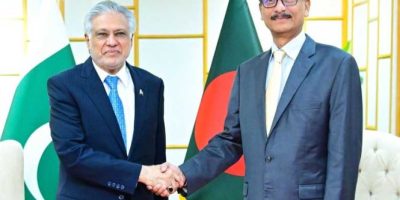Gross human rights violations call for resolution of the Kashmir issue

ISLAMABAD, MAR 1 /DNA/ – Vicotria Schofield, historian and commentator on international affairs said that the gross human rights violations in the valley and the suffering of millions of people demanded resolution of the Kashmir issue in the 21st century. She was delivering a talk at the Institute of Regional Studies (IRS) Islamabad here on Tuesday. She said that it was almost appalling to see that human rights violations of such magnitude could not galvanise the people of the South Asian region to demand an end to such barbarity. When considering resolution of the Kashmir issue, it was imperative to first understand how critically that resolution was related to regional peace, she said. In addition, it was important to realise that geographically, Kashmir was not such a large part of land. She said that it was ironic that the inhabitants, that is the human lives in the valley had not been accorded the significance that they had, and were treated as mere chattel historically, and as figures and numbers presently.
Over the years, military expenditures had heightened in both India and Pakistan, while what should have expanded was a meaningful dialogue process. While addressing the role of international institutions and the West, Dr Schofield commented that the role of the United Nations in the mitigation of the issue had always been unclear and vague. However, she lauded the recent UN reports which vehemently condemn the use of pellet guns and blatant abuse of power. She said that the assistance or oversight that the West or for that matter, the UN could lend to the two neighbours was immaterial unless they agreed to indulge in dialogue first. As such, no body, country or institution had mandatory authority to act on the behalf of India and Pakistan and could only make suggestions for the betterment of bilateral relations, condemn violence and convince both parties for a dialogue.
She said that both countries were in a very disturbing phase with Indian saffronisation at its peak, and that it was important to realise how India had always capitalised the factors that helped sell its narrative on Kashmir. She added that producing authentic research on various aspects of the issue was critical to debunk the narratives that were not entirely true. And in doing so, highlighting the human security perspective as a part of foreign policies of countries was also a considerable option. In addition to dialogue, Dr Schofield said, that transit trade between the two countries was pivotal to restore a balance which could result in economic uplift in both the countries and also improve the lives of the indigenous Kashmiris. While this was a much needed initiative, lack of political resolve at both ends had jeopardised potential trade avenues between the two countries, she added. Dr Schofield vehemently denied the idea that India was the largest democracy in the world and held that it simply was not.
Aarish U. Khan, Editor at the Institute of Regional Studies said that Pakistan had made several efforts to keep the dialogue process alive and that the real problem lied in the fact that India had frequently budged from its position, leaving the issue unattended. He however suggested that there was some scope in national legislations to impose sanctions on Indian units to charge the perpetrators of human rights violations in the valley.
Related News

Pakistan, Bangladesh resolve to bolster ties in various sectors
ISLAMABAD, JAN 25: Pakistan and Bangladesh have expressed their resolve to further strengthen ties acrossRead More

Zhao Shiren lauds Mohsin Naqvi’s role in Pakistan-China friendship
LAHORE, JAN 25 /DNA/ – Federal Interior Minister and Chairman Pakistan Cricket Board, Mohsin Naqvi,Read More


Comments are Closed